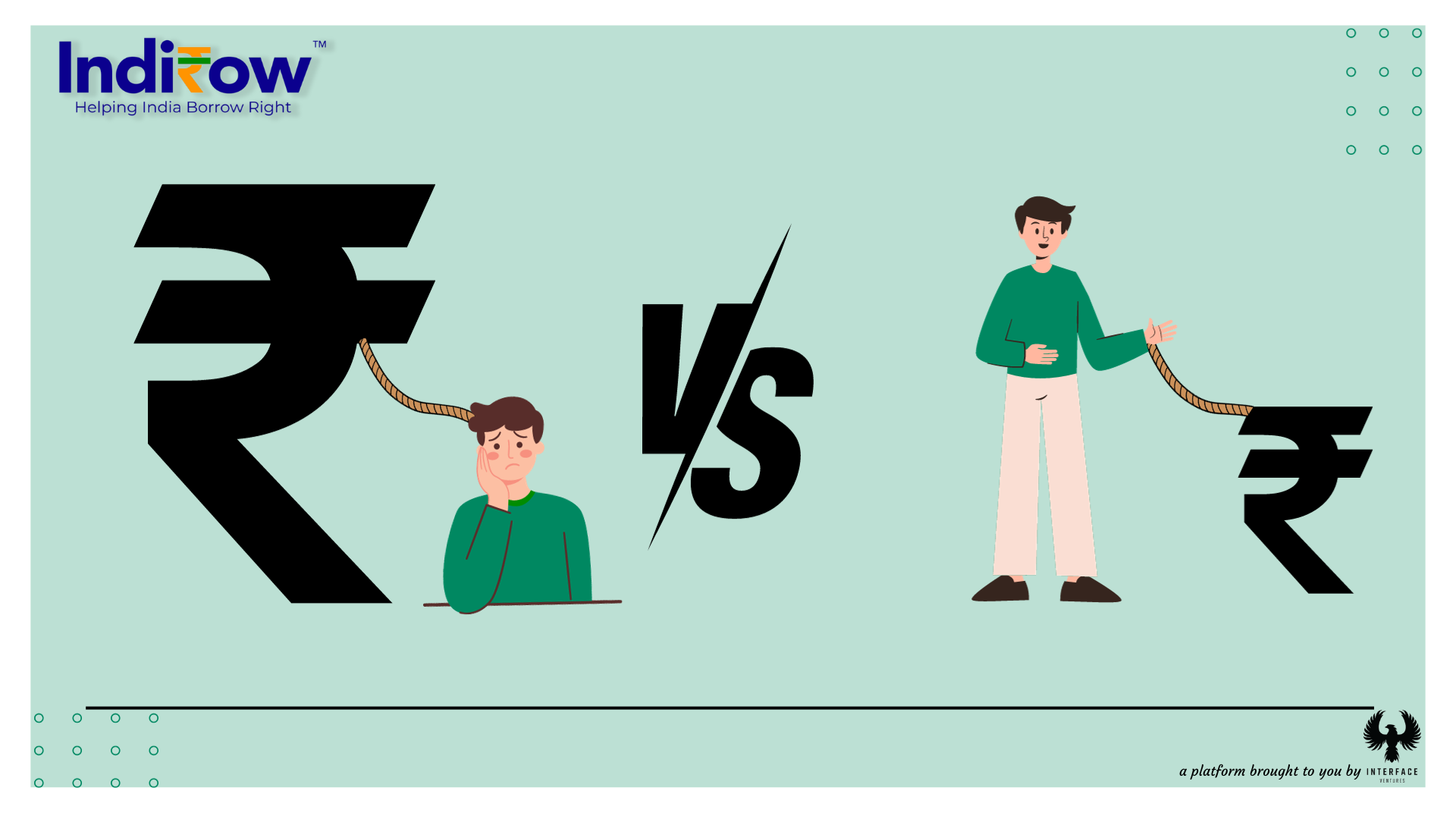
Read Time
5 mins
EMI vs. SIP
Making Wise Financial Choices in India
Written by
Indirow
Introduction
In today's digital age, the internet has transformed the way we live, work, and interacts. One area that has seen significant advancements is the lending industry. With the rise of online loan services, individuals now have the option to apply for a loan online, providing a convenient and streamlined borrowing experience. In this blog post, we will delve into the numerous advantages of applying for a loan online, exploring the benefits of online loan services. From convenience and accessibility to speed and flexibility, discover why online loans have become a preferred choice for many borrowers.
Introduction
In the ever-evolving landscape of personal finance in India, making sound decisions is crucial. Two popular options that often come into play are EMI (Equated Monthly Instalments) and SIP (Systematic Investment Plan). Both serve different financial purposes, and choosing between them can be a daunting task. In this comprehensive guide, we'll delve into the intricacies of EMI and SIP, helping you makes informed decisions about your finances. Whether you're considering applying for the best personal loan in India with Indirow, exploring options for secured loans, or even contemplating a business loan, understanding the dynamics of EMI and SIP can make a significant difference in your financial journey.
EMI Explained
EMI, short for Equated Monthly Instalments, is a widely used financial mechanism in India. It is primarily associated with loans, be it personal loans, home loans, or car loans. When you take a loan, the lender divides the total amount into equitably-sized monthly payments, which include both the principal amount and the interest. EMI provides borrowers with a structured repayment plan, making it easier to manage finances.
For instance, if you're planning to apply online for loans, understanding the EMI associated with your loan can help you assess whether it fits within your budget. This is especially crucial when considering a secured loan, like a home loan or a gold loan, where your valuable assets are at stake.
SIP Unveiled
On the other hand, Systematic Investment Plan (SIP) is a popular investment strategy in India, primarily used for mutual funds. Instead of borrowing money as in the case of EMI, SIP involves investing a fixed amount of money at regular intervals (usually monthly) in a mutual fund scheme. SIP allows you to harness the power of compounding and ride the volatility of the stock market to potentially generate wealth over time.
SIP can be an excellent choice if you're looking to grow your wealth and achieve long-term financial goals, such as retirement planning or buying a house. It's also a flexible option, allowing you to start with a small investment and increase it gradually.
EMI vs. SIP: When to Choose What
Now, let's delve into the factors that influence the choice between EMI and SIP:
-
Purpose of Money
Consider why you need funds. If it's for immediate expenses or purchases like a business loan in India, personal loan for education, or credit card debt repayment, EMI makes sense. On the other hand, if you're planning for long-term financial goals or wealth creation, SIP is the way to go.
-
Risk Tolerance
EMI is a fixed commitment, while SIP is subject to market fluctuations. Assess your risk tolerance and ability to withstand market volatility. If you're risk-averse, EMI might be a safer option.
-
Return Expectations
EMI guarantees repayment of your loan with interest, whereas SIP returns are market-dependent. If you're seeking higher returns and can bear the risk, SIP can offer potential wealth creation opportunities.
-
Loan Tenure
For short-term needs, such as a best loan app in India, EMI may be more appropriate. Conversely, for long-term financial goals, SIP's gradual wealth accumulation can be advantageous.
-
Asset Ownership
If you have valuable assets like gold or property, you might consider securing a loan against them. In such cases, understanding the EMI terms and interest rates is crucial.
Conclusion
In conclusion, the choice between EMI and SIP depends on your financial goals, risk tolerance, and the purpose of your funds. EMI serves as a structured repayment tool, making it suitable for loans, including business loans, personal loans, or even credit card debt. SIP, on the other hand, is an investment strategy that can help you grow your wealth over time, making it ideal for long-term financial goals.
Whether you choose EMI or SIP, understanding the dynamics of these financial mechanisms is essential to making wise financial choices in India. Platforms like Indirow can assist you in finding the best loan options and ensuring your financial decisions align with your objectives. So, take the time to evaluate your needs, consider your options, and embark on a path to financial success.
